"The Ralph" is no stranger to hosting international tournaments, having previously hosted the 2005 World Juniors, which featured a bumper crop of up and coming talent due to the NHL season being cancelled that year, which freed up several players who would have otherwise been employed in a normally active NHL. The most recognizable names from that tournament included Dion Phaneuf, Shea Weber, Jeff Carter, Sidney Crosby, Ryan Getzlaf, Mike Richards, Corey Perry and Patrice Bergeron of Canada, David Krejci and Michael Frolik of the Czech Republic, Tukka Rask of Finland, Thomas Greiss of Germany, Alexander Ovechkin and Evgeni Malkin of Russia and Ryan Callahan, Phil Kessel, Drew Stafford, Alex Goligoski, Ryan Suter, Al Montoya and Cory Schneider of the United States.
The U18 World Championships began in 1999 and the first two years were won by Finland. Subequently, the tournament has been won by Russia in 2001 and 2007, Canada in 2008, 2003 and 2013 and by the United States nine times, including six of the last seven years including the previous two tournaments in 2014 and 2015.
The United States run of six out of the last seven began in 2009, the only previous time the tournament was held in the United States, 80 miles down the road from this year's location in Grand Forks when it was held in Fargo, North Dakota and Moorhead, Minnesota. To give you an idea of the potential talent one might see at this year's edition, the 2009 event included future NHLers Ryan O'Reilly of Canada, Mikael Granlund and Erik Haula of Finland, Tom Kühnhackl of Germany, Evgeni Kuznetsov, Alexander Burmistrov and Vladimir Tarasenko of Russia, Nino Niederreiter and Sven Bartschi of Switzlerand, Robin Lehner, Oliver Ekman-Larsson, Gabriel Landeskog, Magnus Pääjärvi-Svensson of Sweden and Americans Jack Campbell, Cam Fowler and Jason Zucker.
This year's U18 tournament sees ten teams competing in two groups of five each. Group A consists of Latvia, Russia, Sweden, Switzerland and the United States. Group B contains Canada, the Czech Republic, Denmark, Finland and Slovakia.
The first game today is a Group A matchup between Latvia and Switzerland and is a vital match for each club in their efforts to reach the playoff round and avoid the fight for relegation. The same can be said for the second game of the day, a Group B match between Slovakia and Denmark. After the Czech Republic and Finland take to the ice at the tournament's secondary arena, the Icon Sports Center (also in Grand Forks), the day's main event begins at 7:30 when the United States begins it's defense of it's gold medal against no less than Russia.
Canada begins play Friday against Denmark and Sweden takes the ice for the first time versus Latvia.
From there, the US plays both Saturday against Sweden and on Sunday they take on Latvia and Canada's second game comes on Saturday when they battle the Czech Republic. The Preliminary Round concludes with four games on Monday and the last four of the round on Tuesday, highlighted by Sweden vs. Russia and Finland vs. Canada as well as the final game for the Americans against the Swiss.
At the conclusion of the Preliminary Round, the top four nations in each group will be paired with a team from the opposite group in the Quarterfinals on April 21st, with the group winners facing the #4 team from the other, while the #2's take on the opposite #3's. After a day off, the Semifinals will be on April 23rd with the Bronze and Gold Medal games being on Sunday, April 24th.
Meanwhile, the two fifth place teams in each group will meet in a best-of-three series to determine which team will be relegated down to Division I Group A for 2017.
The NHL Network in the US will be broadcasting all of the games of the United States, some live and some later the same day while Canadian games can be found on TSN in Canada.
Many of the players in this tournament are highly ranked in advance of the upcoming NHL Draft in June. Center Logan Brown is ranked as the 7th prospect in the NHL Draft Prospect Rankings, while Clayton Keller is currently the leading scorer on the United States National Development Program team with 37 points in 23 games and is ranked 8th. The feisty Kieffer Bellows, son of former NHLer Brian Bellows is next at 10th. Center Trent Frederic and defensemen Ryan Lindgren and Adam Fox round out the top 50 at 47, 49 and 50.
Canada's roster includes Jakob Chychrun, who will likely be the first defenseman taken this year and is ranked at an eye opening #4 among North American skaters. Canada has an embarrassment of riches at center, with Michael McLeod at #13, Tyson Jost #16, Pascal Laberge #28, Jordan Kyrou #34 and William Bitten at #42. Additionally, defenseman Dante Fabbro at #18 and right wing Cameron Morrison at #46 are both also in the top 50.
Sweden's Alexander Nylander, son of former NHLer Michael Nylander, is a left winger to keep an eye on, currently ranked #3 has already led Sweden in scoring at this year's U20 World Juniors and will be a force on the ice at the U18's.
The most notable among the Russians is defenseman Mikhail Sergachyov and his is projected to be a top ten pick this year and is ranked at #8 among North American skaters, as he is currently playing for the Windsor Spitfires of the OHL.
No preview of this tournament would truly be complete without mentioning the situation with the Russian squad, as the day before the U18 team was to leave for North America, the entire roster was recalled and replaced by the Russian U17 team over concerns of the recently banned drug Meldonium, the same substance that led to a failed test for tennis superstar Maria Sharapova. U18 head coach Vitaly Prokhorov was also fired by the Russian Minister of Sport and will not be there with the U17 replacement roster.
Accounts state that the majority of the U18 roster failed tests for Meldonium and the team is not being sent to avoid being tested in competition and subsequently suspended. With notice having been given that Meldonium would be banned as of January 1, 2016, Russian athletes reportedly discontinued its use last fall, but no one is currently sure how long it will stay in your system, but it looks as though it lingers long enough to have tripped up the Russian U18 squad, costing fans in Grand Forks the opportunity to see German Rubtsov, a center rated #6 among European skaters.
Meldonium apparently has been treated similar to a supplement in Russia to protect the heart during competition following the premature death of Alexei Cherepanov. However, it also has been classified as a metabolic modulator that can allow blood to carry more oxygen and aid in recovery times, and thus be considered a performance enhancing drug.
The question we have is, if there has been a long standing, systematic use of Meldonium by Russian athletes in ski jumping, tennis, ice hockey, volleyball, judo and even curling, why isn't the U17 team at the same risk for being tested in competition like the U18 squad? Hopefully the tournament in Grand Forks is allowed to play itself out naturally and this is the end of the discussion of Meldonium, doping, performance enhancing and drug testing and the competition stays out on the ice and not in the lab, either during or after the tournament.

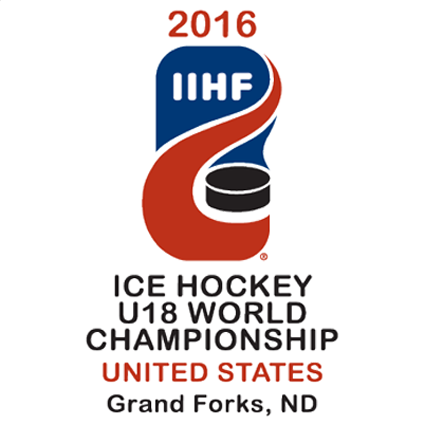
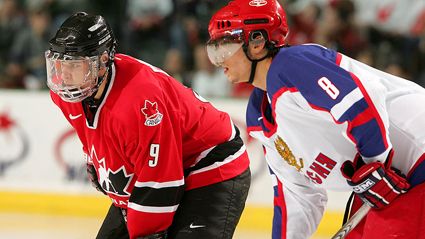
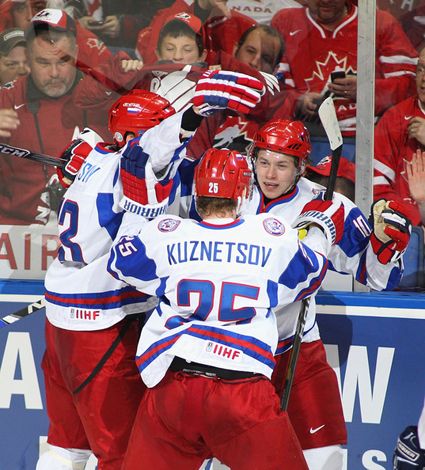
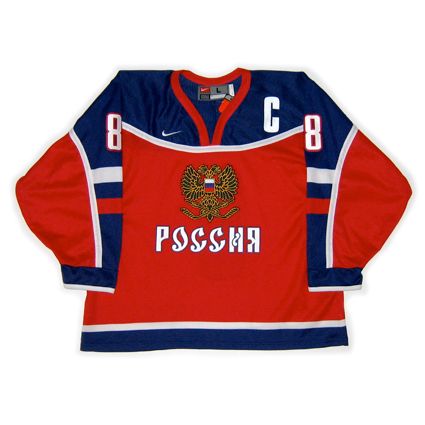
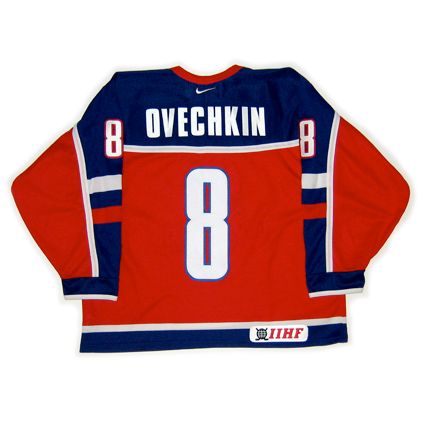
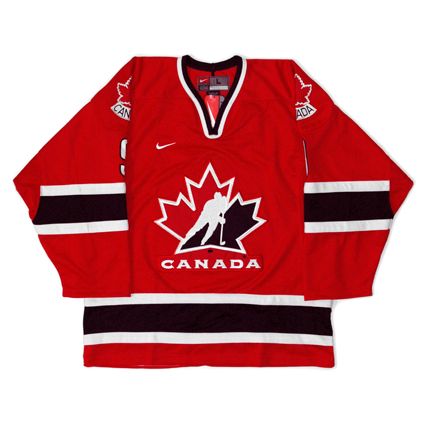
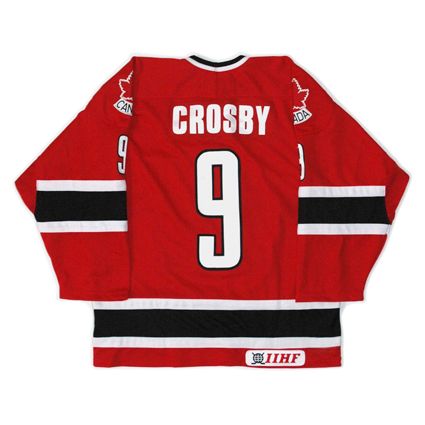










No comments:
Post a Comment
We welcome and encourage genuine comments and corrections from our readers. Please no spam. It will not be approved and never seen.